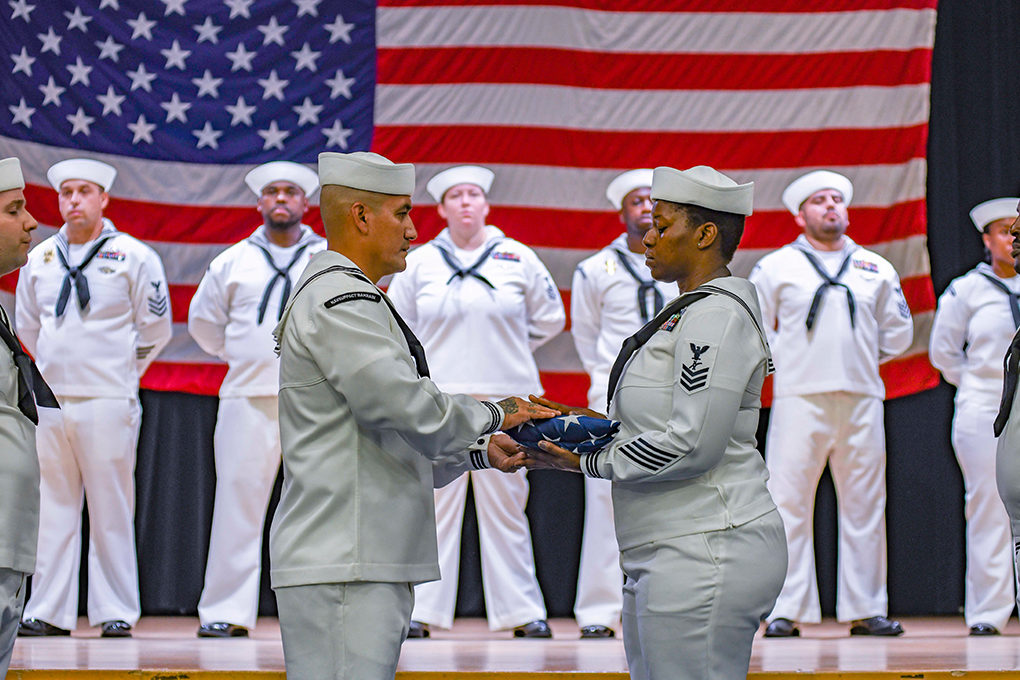Transitioning from military service to a civilian career often begins with something that can feel deceptively simple: crafting a strong military to civilian resume. For active-duty service members with less than two years left in uniform, this document becomes more than a summary of past work.
It represents a bridge to the future, one that must reflect unique accomplishments in a format that speaks clearly to civilian employers.
Military to Civilian Resume: What Do Employers Want?
Before writing a single line, it’s important to consider what civilian employers expect in a resume. Most hiring managers aren’t familiar with military jargon, and they’re unlikely to take the time to decode it. That means a strong military to civilian resume must speak plainly.
Civilian jobs typically focus on outcomes, transferable skills, and the ability to work in collaborative environments. Highlighting leadership, logistics, project management, or specialized training makes a powerful impression when written in a language the private sector recognizes.
The Value of Context and Clarity
One of the most common challenges in building this kind of resume is knowing how to describe military experience in a relatable way. Avoid using acronyms, rank structures, or titles that carry meaning only within the military.
Instead, describe your role in terms of function and result. Did you manage a team? Frame it that way.
Were you responsible for mission planning or resource allocation? State it using clear, civilian-friendly terms. This process is at the heart of how to translate military experience into civilian resume format.
Building a Basis: Contact Info and Summary
Your resume should open with your name, phone number, email address, and LinkedIn profile (if available). This is followed by a brief summary. For active-duty personnel, this summary should mention impending separation from the military and express interest in entering a particular field or industry.
Keep it focused and professional. Avoid clichés or vague statements. For example, instead of writing “Hardworking leader seeking a new opportunity,” say, “Operations specialist with five years of supervisory experience seeking project management roles in the logistics sector.”
Experience Section: Translating Roles Into Civilian Language
This is where most of the work happens. Your job is to take military titles and convert them into roles civilians understand. A Fire Direction Chief in the Army, for instance, might be described as a “Team Leader overseeing high-pressure data analysis and tactical communication systems.”
It’s not about downplaying the role, but about reshaping it for a new audience. Include measurable outcomes.
Did you train others? Did you manage equipment or coordinate complex projects? Quantify those results. Use active verbs and keep your descriptions short but impactful.
Education and Certifications
This section should list any college degrees, certifications, and technical training. If you’ve completed military-specific programs that relate to civilian careers such as cybersecurity, medical support, or engineering, describe them using terms familiar to the public.
For example, instead of listing a military training code, describe the outcome of that training in a way that mirrors job duties in the civilian sector. If you’re still pursuing a degree, indicate the expected graduation date.
You can also include relevant coursework if you lack direct experience in your desired field. Courses in leadership, project management, or technology are especially worth noting.
If you’ve earned honors or have been recognized academically, mention it briefly. It demonstrates dedication and discipline; two qualities employers appreciate.
Technical Skills and Tools
The private sector loves skill sets. Be sure to add a section that lists technical proficiencies: software platforms, machinery, communication systems, coding languages, or compliance training.
Don’t overlook tools used daily in your military position. Many have direct civilian applications. The secret is matching these to the field you’re targeting. Employers often scan resumes electronically for specific keywords, so this section should reflect terms used in the civilian job postings you’re pursuing.
Also, think broadly. Skills like GIS mapping, secure communications, or data analysis may translate well to industries like logistics, cybersecurity, or law enforcement. Clarity and relevance are your allies here.
Using Keywords the Right Way
While keyword optimization is part of resume writing, stuffing your document with buzzwords does more harm than good.
Focus on quality over quantity. Use the terminology that appears naturally in job descriptions, but don’t force it.
If a position requires proficiency in Microsoft Office, say so only if it’s true. If you’ve completed specialized training relevant to your field, be specific. Avoid acronyms without spelling them out first, especially if they’re unique to the military.
Research the industry and shape your resume accordingly. For best results, tailor each resume to match the job you’re applying for, even if it means minor edits. This level of detail reflects your commitment to making a smooth and confident shift into the civilian workforce.
Avoiding Common Mistakes
There are a few frequent missteps that can hold your resume back.
First, avoid listing duties instead of accomplishments. Employers want to know what impact you made, not just what tasks you performed.
Second, don’t make your resume too long. Keep it to one or two pages.
Third, don’t assume your military background speaks for itself. It doesn’t in the eyes of most civilian employers. Clarity and relevance matter more than rank or awards.
Military to Civilian Resume Examples That Work
Let’s look at a few rewritten titles to understand the process:
- Original: Platoon Sergeant, USMC
- Civilian: Operations Supervisor managing 30+ personnel in logistics and field operations
- Original: Avionics Technician, USAF
- Civilian: Electronics Technician responsible for diagnosing and repairing high-value communications equipment
- Original: Human Intelligence Collector, USA
- Civilian: Interviewer and Research Analyst conducting field assessments and compiling actionable reports
These military to civilian resume examples show how powerful translation can be. They also give hiring managers a chance to see the real value behind a military career through a lens they understand.
Using Tools and Resources Effectively
While writing a resume may seem like a solo task, there’s value in getting some support. Services that specialize in military transition can help. That’s where military transition services become useful.
These options guide active-duty service members through the specifics of civilian career prep. Resume development is one element, but so are interview strategies, job search tactics, and industry targeting.
For those serious about a smooth shift into civilian life, this kind of focused support saves time and frustration.
LinkedIn as a Companion Tool
Once the resume is built, it makes sense to carry over its content into an optimized LinkedIn profile. Recruiters use LinkedIn constantly to discover potential hires. Your digital presence should mirror the professionalism of your resume.
Repeating important accomplishments, technical skills, and career objectives helps establish your brand. Many transition-focused services now include LinkedIn optimization packages for this very reason. It’s not just about having a resume anymore. It’s about being findable.
Fine-Tuning the Resume for Each Opportunity
One resume won’t work for every application. Each job requires a slightly adjusted version of your resume. That means tweaking the summary, emphasizing different skills, or reordering experiences. This process might seem tedious, but it speaks directly to your interest in a job.
Employers notice when a resume feels targeted. They also notice when it’s generic. Following this approach is a prime example of having and following a plan.
When to Start Writing
Too many people wait until they’re out of uniform to build their resume. That’s a mistake. Resume development should begin long before the separation date.
It helps you take stock of your accomplishments and set a direction. It also prepares you to jump on job opportunities early. A well-timed resume is more than a document. It’s a stepping stone to employment. Don’t wait. Draft early, revise often, and get feedback.
The Right Attitude Matters
Approaching resume writing with curiosity, openness, and a willingness to adjust can make the process more successful. Civilian careers differ from military ones in many ways. What’s valued in the private sector isn’t always what was rewarded in uniform.
However, that doesn’t mean your past experience lacks value. It simply needs a new format. Reframing your story takes time, but it’s possible and worthwhile.
Creating a Resume that Works for You
In the end, a good military to civilian resume isn’t about flashy language or clever formatting. It’s about clarity, honesty, and strategic positioning. It reflects where you’ve been and where you’re going. It shows how your military service prepared you to contribute to a new environment.
It gives employers the confidence to call you in for an interview. That’s the goal, and it’s within reach.
Our Work: Supporting You Through the Process
Zero Nexxus specializes in working with active-duty service members who are approaching the finish line. We know what it means to balance duty today with goals for tomorrow. That’s why we build every transition strategy from the ground up.
Your experience is not generic. Your resume shouldn’t be either. We take the time to get to know your background, strengths, and professional ambitions.
We don’t rely on templates or shortcuts. We work with you directly to build a plan that fits your timeline and your goals.
Our resume writing approach is practical and personalized. Combined with our military transition service packages, it gives you the tools to step forward confidently.
If you want feedback, edits, or a total rewrite, we’re ready. We’ve helped hundreds of service members write resumes that get attention and we’re ready to help you. Begin the process with us today.



